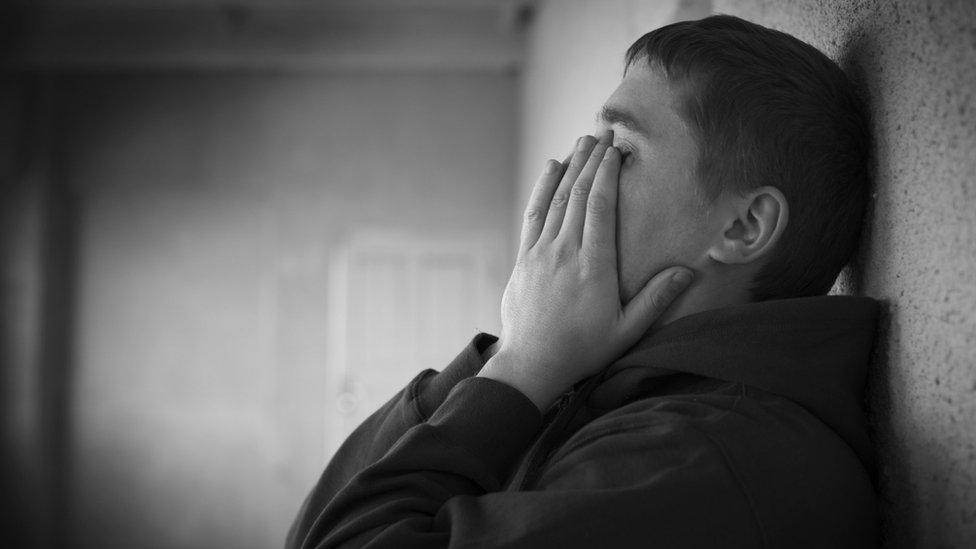Missing people: The Leicester man who disappeared for 24 years
- Published
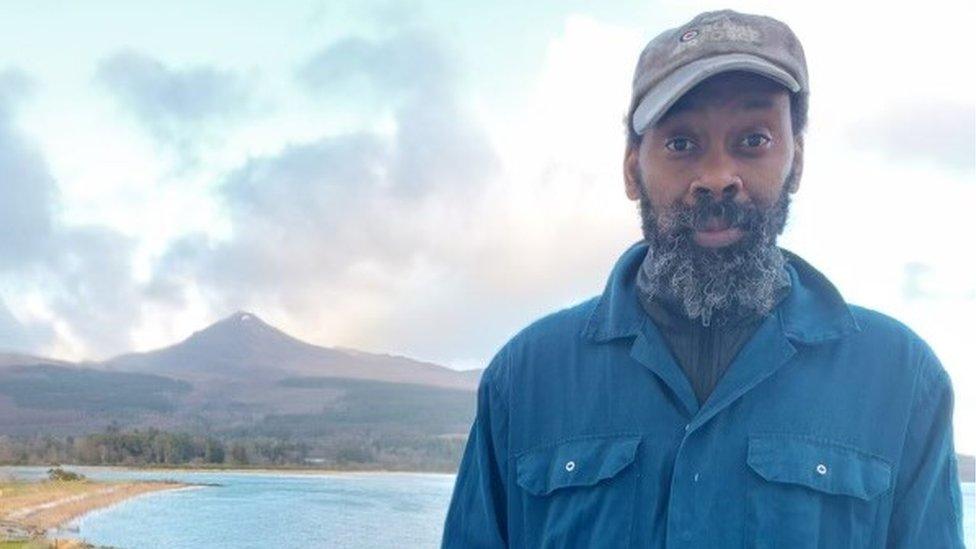
Mr James had been running a guest house on the Isle of Arran
Whenever Muriel James saw on the news that a body had been found somewhere, she always feared it might be her son.
She had last seen Ricardo in 1998, when he was in his early 30s.
He had told her he needed some space, after surviving a building fire in London, and was travelling around the south of England but then contact stopped.
He had disappeared, with no explanation.
So when he turned up on her doorstep in Leicester, just before Christmas, she said she was shocked.
"I nearly went through the floor," said Muriel, 84.
"When I answered the door I thought 'this person looks like someone I've met'.
"I thought it was probably one of his dad's friends.
"He looked at me, he saw me struggling and said 'Ricardo'.
"He has this beard now that he didn't have before but I recognised the lips."
Muriel invited Ricardo into the family home and called upstairs to her husband Roosevelt.
"I told his dad 'your lost son is here' and he come downstairs crying," she said.
"I'm still not over it yet."
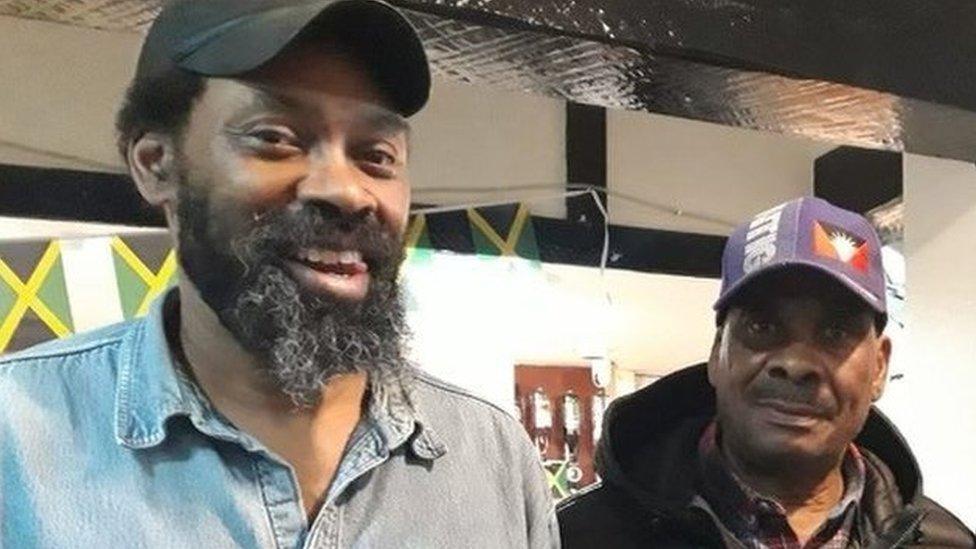
Mr James spent time with his father Roosevelt when he returned to Leicester
As Ricardo - now aged 55 - stepped over the threshold of his home for the first time in more than two decades, Muriel had so many questions for him.
Where had he been living all this time? And why had he disappeared in the first place?
The answers were unexpected.
Ricardo told her that while he had been living in Somerset, he had had a dispute with one of his neighbours.
He said the confrontation had resulted in him being convicted for assault and sent to prison for 18 months.
"I chose from that period onwards not to contact my family because I didn't want to bring that burden of me going to prison down on anybody," he said.
"I didn't really feel confident in myself that I had achieved what I wanted to."
When he emerged from prison in 2002, he reunited with his partner Hilary.
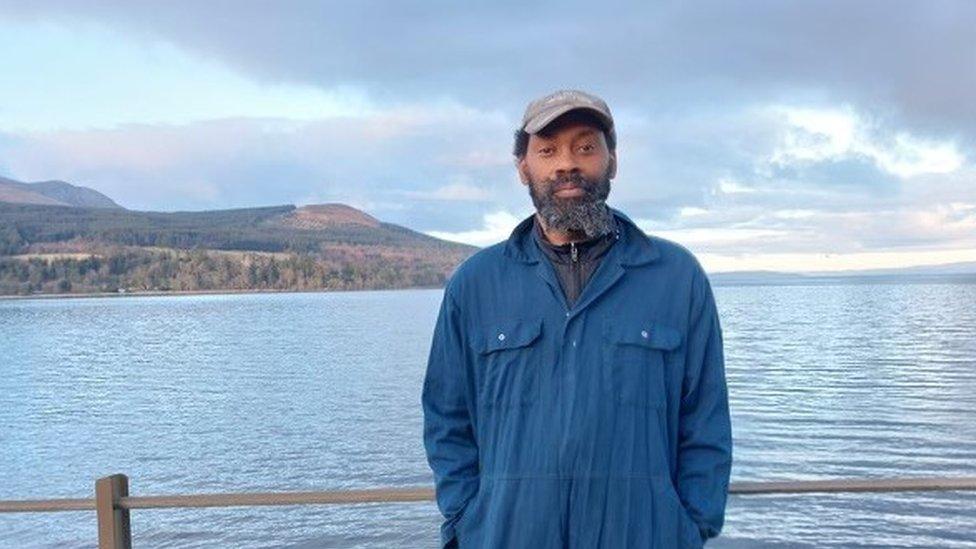
Ricardo found island life agreed with him
Although the couple had met in Guildford, she had moved to the Isle of Arran, off the west coast of Scotland, and she invited him to join her there.
He agreed and went to help run her guest house business.
He quickly found island life agreed with him and settled there.
"It's quiet, it's peaceful, it's tranquil," he said.
"We've got the view of the mountain across the bay.
"We get bad weather - the wind - that's the only downside."
In summer, he said, the island's population triples in size.
"We meet lots of people... [they] come from all over the world," he said.
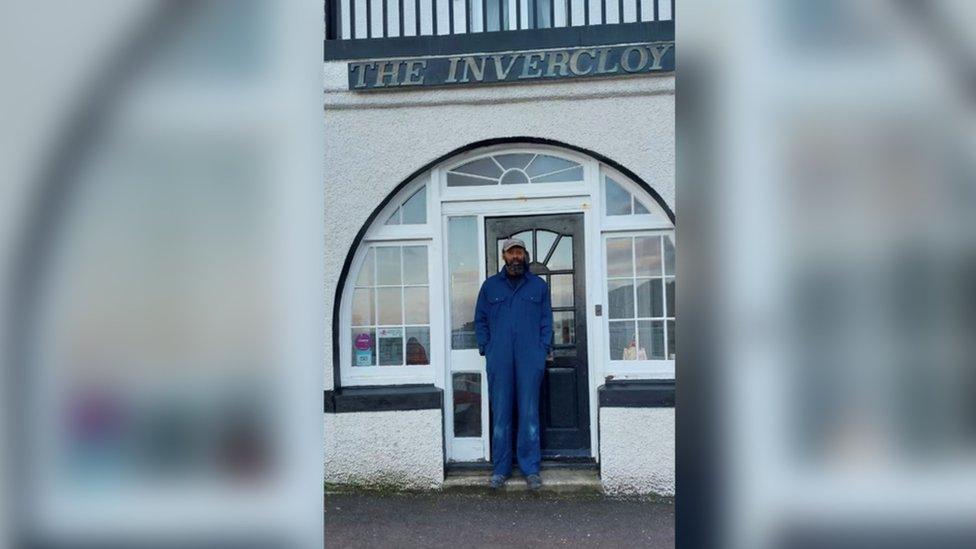
Ricardo and Hilary run a guesthouse together on the Isle of Arran
After two decades of meeting new people, Ricardo decided it was time to reunite with some of those from his past.
In November he returned to Leicester for the first time in 24 years.
"I didn't know if my mum and dad still lived at the address I was going to, because I hadn't made contact with anybody," he said.
"It was one of the best feelings to see my mum standing there because I didn't know if she'd died, moved on or gone back to the Caribbean."
Given the length of time that had passed without any contact, Ricardo said he had not known if he would even be welcome in his parents' house.
But soon his entire family had been invited round to see his dramatic homecoming.
"The house was full of people," he said.
"I was overwhelmed by the whole occasion."
Ricardo is now back at his home on Arran, doing repairs and maintenance to the guesthouse ahead of the next holiday season.
"There is a lot for me to do; it keeps me occupied," he said.
However, he has another trip to Leicester planned and remains in contact with his family.
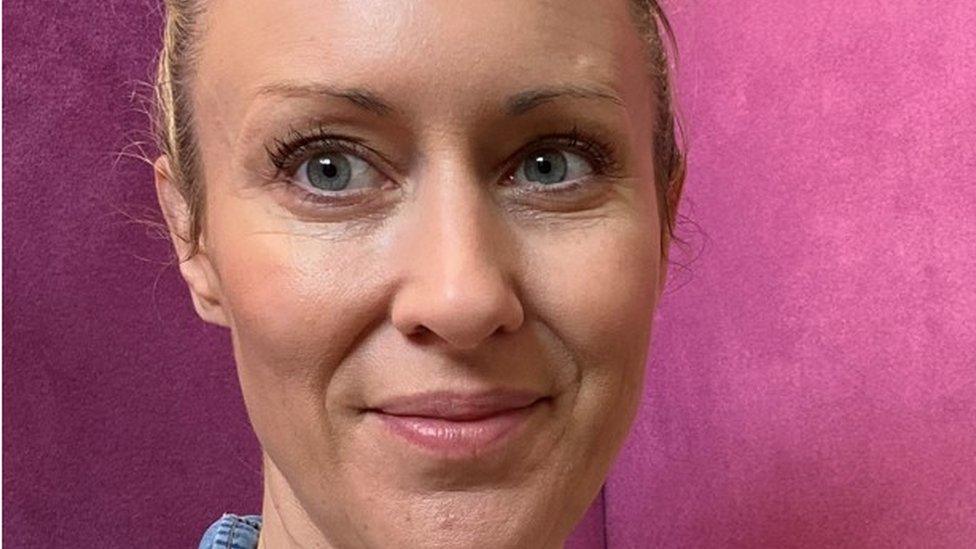
Kirsty Hillman said she felt Ricardo had been very brave
Every year, more than 300,000 calls are made to police about people going missing, and police forces across England and Wales respond to an average of 12 missing person reports every day.
Ricardo's disappearance was never reported to the police but the charity Missing People said this was not unusual.
Kirsty Hillman, from the charity, said people did reappear after being missing for many years.
She said she felt Ricardo had been very brave in making contact with his parents.
"People feel very worried about getting back in touch," she said.
"It may be they feel their family is better off without them, maybe they don't know how to reach out or maybe they're worried their family wouldn't want them back.
"The longer you're missing, the easier it is to stay missing."

Follow BBC East Midlands on Facebook, external, on Twitter, external, or on Instagram, external. Send your story ideas to eastmidsnews@bbc.co.uk, external.
Related topics
- Published4 August 2020
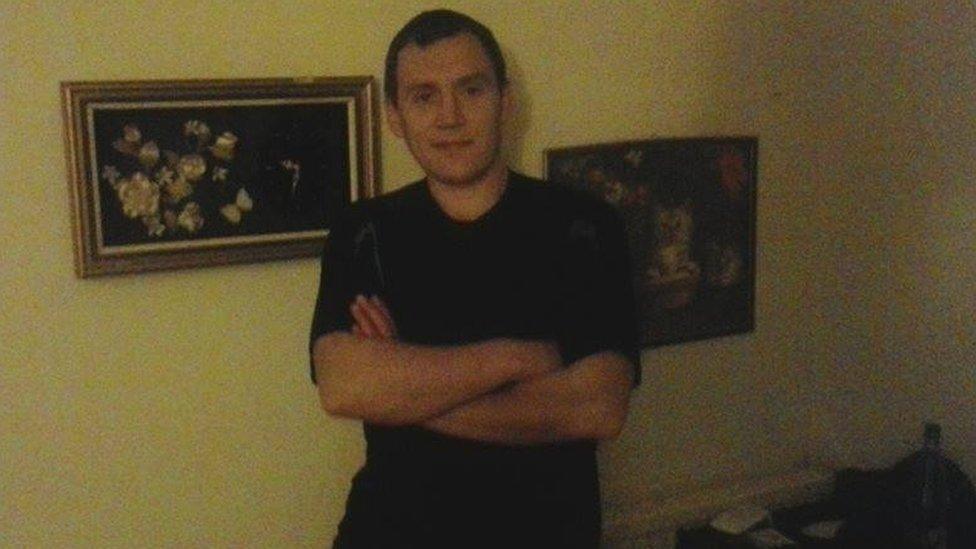
- Published4 April 2016
